In This Story
College recognizes teaching excellence and commitment to student success
The College is proud to announce the promotion of five faculty members:
-
Lila Fleming – Associate Professor, Department of Global and Community Health
-
Kerri LaCharite – Associate Professor, Department of Nutrition and Food Studies
-
Laura Poms – Professor, Department of Global and Community Health
-
Margaret Rodan – Professor, Department of Nursing
-
Rebecca Sutter – Professor, Department of Nursing
“The past two years have presented even the most seasoned faculty with new challenges for instructing and supporting students. We are grateful for the way our entire faculty has helped support student success and are extremely proud to announce instructional faculty promotions for 2022,” said Cathy Tompkins, associate dean for faculty and staff affairs.
Fleming, LaCharite, Poms, Rodan, and Sutter are recognized for their excellence in teaching and dedication to students. Our faculty embrace the rich diversity of our student body and seek to engage students to achieve their full potential. Below faculty share a glimpse into their teaching philosophies, how they support students, and their commitment to preparing the future health care workforce.
Lila Fleming
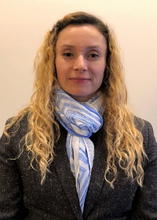
On supporting all types of learners:
Mason students represent the wonderful diversity of America and the world, including students from a wide range of ages, ethnicities and races, sex and gender identities, language backgrounds, and life experiences (such as military service and parenthood), and they bring a fantastic variety of perspectives to the classroom. I am intentional about developing my courses utilizing universal course design practices that support the success of all learners.
Part of accessibility is making sure that all course content is captioned so that students who are blind or have low vision have access to descriptions of all the images in course documents and students who are deaf or hard of hearing have access to captions for all audio and video course components. Accessibility also means making relevant course materials available to students early so that they can prepare for in-person class sessions (especially if they are English language learners or have learning differences) and can complete online work at their own pace when work and school responsibilities make it necessary to finish quizzes and assignments days before the scheduled deadlines.
Kerri LaCharite
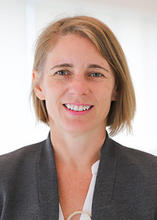
On the importance of experiential learning:
At Mason, all my classes involve experiential learning as much as possible. I see the Nutrition Kitchen much like a campus farm or garden in terms of experimentation and communal experiences. In Fundamentals of Cooking, we cook together. When we are not cooking together, I try to take an active approach in covering some of the science and culture of cooking. We handle different types of flour when discussing the bonds formed by gluten to witness the effect of protein levels on the plasticity and elasticity of the dough. We look and taste the differences between conventional and pasture-raised eggs when covering the difference in omega-3 and omega-6 ratios in each.
I believe that experiential learning, both lab and project-based, can uniquely engage students through both affective and cognitive realms, connect with prior learning, and create student-led learning. And, to be honest, it is so much more enjoyable for me as well as the students. It feels good when students smile in class because they are having fun. We often make greater learning gains in areas and topics that are interesting, engaging, or important to us.
Laura Poms
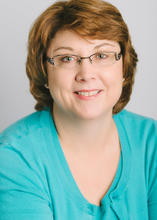
On her teaching philosophy:
My overarching teaching philosophy is that learning does not stop when the class ends. I encourage my students to apply what we talk about in class to their everyday lives. I often directly ask, “Why should you care about this? Why does this matter?” Sometimes it takes a while for students to make those connections, but when they “get it,” there is nothing more rewarding. It is in this less tangible way that I believe my teaching has a significant impact on my students.
As I have learned through years of practice and research into pedagogy, there is no right answer, there are an array of options for teaching and learning. A good teacher knows when to use what. And if something doesn’t work, an excellent teacher isn’t afraid to change.
Margaret Rodan
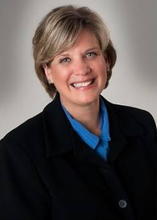
On teaching students:
My career focus has been to build nursing expertise, research, and training in the broader context of society, communities, and the policies and institutions – private and government – in which nurses practice and interact. I have implemented this by blending research on nursing and public health with teaching and community service, addressing the critical role of nursing in a rapidly changing society and healthcare delivery structures. COVID-19 highlighted the importance of nurses but also accelerated an already rapidly changing dynamic of evidence-based practice and data interpretation, remote learning, and clinical practice, amidst social tensions related to healthcare policies, inequities, and funding. These factors will increasingly impact nurses and the nursing profession.
My teaching philosophy is to find the proper level of instruction that gives each student his or her greatest opportunity for success. My teaching objective is and will be, to equip nurses to advance in this changing socio-economic and technological world, all the while staying true to our career calling to care for the health of people. The ultimate goal is to use research-based teaching strategies to promote curiosity, imagination, independent thinking, learning, and research.
Rebecca Sutter
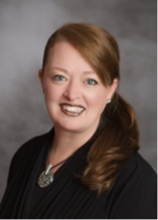
On her goals for the future for herself and the health care workforce:
My first 10 years at Mason have been one of growth, innovation, and hard work. The hard work has paid off as I watch students at every level and students from different professions see healthcare differently, specifically healthcare for vulnerable populations. They will go beyond what they have learned here at Mason and change the outcomes at the individual, community, and national levels. My greatest goal continues to be to influence our future workforce and empower them to be the change agents we need in our health care system. I firmly believe that if we want to see change, it starts with how we are educated. I will continue to bridge the gap between practice, teaching, and research while serving the community and preparing innovative solutions to health care challenges.
Promotions take effect at various times in summer 2022. Tenure promotions will be announced at the end of May 2022.
Congratulations to all!
